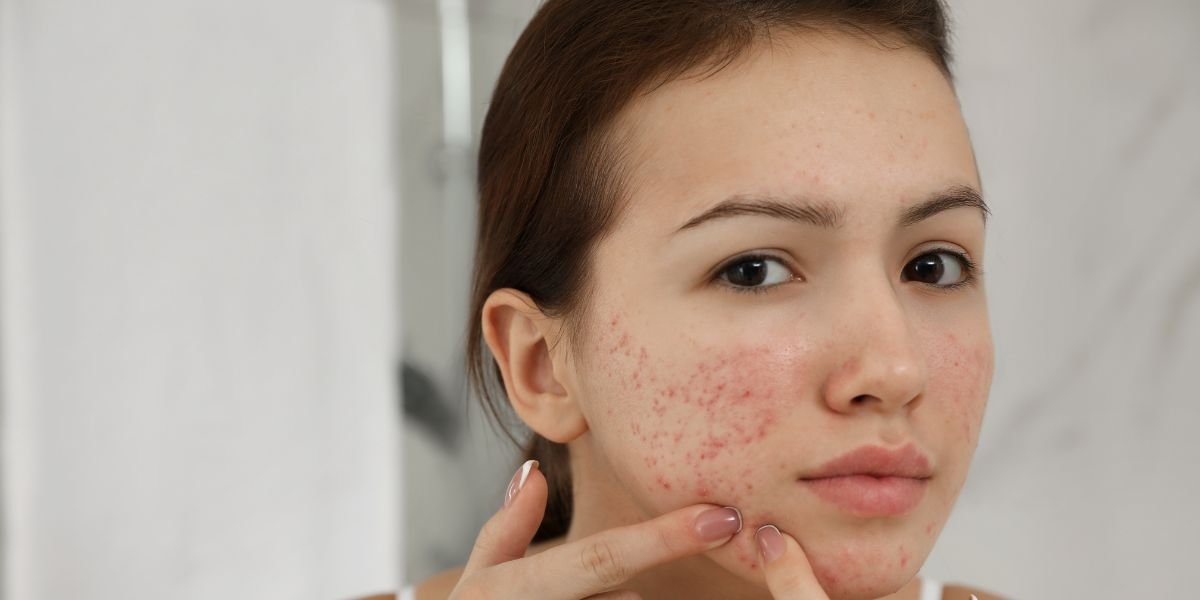How to Treat Acne Scars and Prevent New Breakouts

You’re not alone in the quest for smooth, clear skin. Dealing with acne scars and preventing new breakouts requires a multifaceted approach that combines various techniques and treatments. From simple home remedies to more advanced professional procedures, the options are abundant. But how do you navigate through this sea of information to find what truly works for you? Let’s explore the science-backed methods and practical tips that can help you achieve your skin goals.
Understanding Acne Scars
To comprehend the lasting impact of acne, one must grasp the intricacies of how acne scars form on the skin. When acne lesions penetrate deep into the skin, they can damage the tissue beneath. The body then works to repair this damage by producing collagen. In some cases, the body may produce too little or too much collagen during the healing process, leading to different types of acne scars.
There are two main types of acne scars: atrophic and hypertrophic. Atrophic scars are caused by a loss of tissue, resulting in depressions or pits in the skin. On the other hand, hypertrophic scars are raised and occur when the body produces too much collagen during the healing process. Understanding the type of acne scar you have is crucial in determining the most effective treatment.
Acne scars can have a significant impact on one’s self-esteem and confidence. By understanding how these scars form, you can better appreciate the importance of treating and preventing them to maintain healthy and clear skin.
Treating Acne Scars at Home
You can effectively treat acne scars at home using simple and natural remedies. One popular method is applying aloe vera gel directly onto the scars. Aloe vera is known for its soothing properties and can help reduce inflammation and promote healing.
Another option is using honey, which has antibacterial properties that can aid in scar reduction. Simply apply a thin layer of honey onto the affected areas and rinse off after 10-15 minutes.
Lemon juice is also a common household item that can help lighten acne scars due to its natural bleaching properties. Be cautious if you have sensitive skin, as lemon juice can be drying. Dilute the lemon juice with water before applying it to your scars.
Additionally, you can create a gentle exfoliating scrub using baking soda and water to help remove dead skin cells and promote skin renewal.
Professional Treatments for Acne Scars
Professional dermatologists offer various advanced treatments for acne scars, such as laser therapy and chemical peels, to effectively improve skin texture and appearance. Laser therapy works by removing the outer layer of skin, stimulating collagen production, and reducing the appearance of scars. It’s a popular choice for treating acne scars as it’s minimally invasive and promotes skin healing.
Chemical peels involve applying a chemical solution to the skin, causing it to exfoliate and eventually peel off. This process helps to improve the texture of the skin and reduce the visibility of acne scars. Professional treatments like these are often more potent and have faster results compared to at-home remedies.
Another effective professional treatment for acne scars is microdermabrasion, which exfoliates the skin and improves its overall tone and texture. Dermatologists may also recommend microneedling, a procedure where tiny needles create micro-injuries in the skin to stimulate collagen production and reduce the appearance of scars. Consulting with a dermatologist can help determine the best treatment option for your specific acne scars.
Preventing Future Breakouts
Considering your skin type and lifestyle habits can significantly impact the effectiveness of preventing future breakouts. To keep your skin clear, start by choosing skincare products formulated for your specific skin type. If you have oily skin, opt for oil-free or non-comedogenic products to avoid clogging your pores. For dry skin, look for hydrating and gentle products to maintain moisture balance.
Establishing a consistent skincare routine is crucial in preventing breakouts. Cleanse your face twice daily with a gentle cleanser to remove impurities and excess oil. Regular exfoliation can also help prevent clogged pores. However, be cautious not to over-exfoliate, as it can irritate your skin and lead to more breakouts.
Maintaining a healthy lifestyle plays a significant role in preventing acne. Ensure you stay hydrated, eat a balanced diet rich in fruits and vegetables, and get an adequate amount of sleep. Exercise regularly to reduce stress levels, as stress can trigger breakouts. By paying attention to your skin type and lifestyle habits, you can effectively prevent future breakouts and promote clear, healthy skin.

